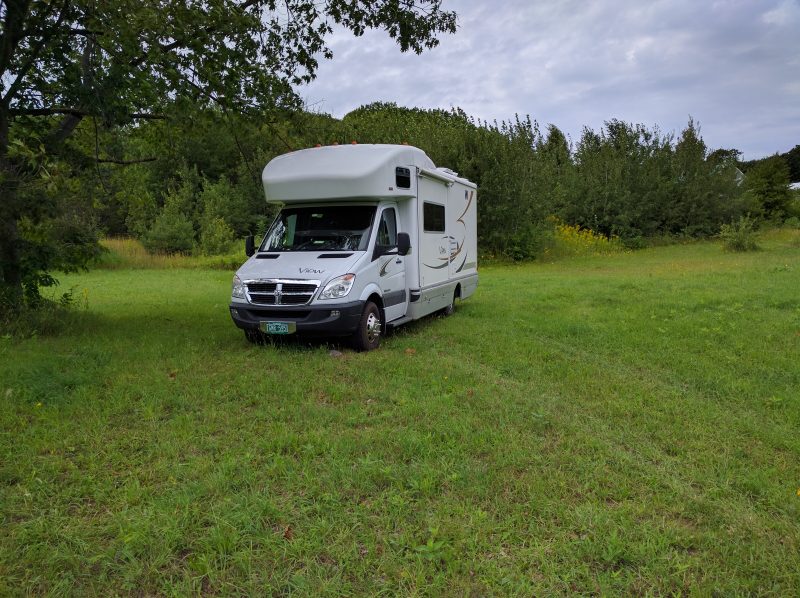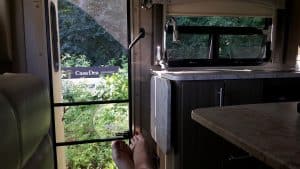
RV travelers, vanlifers and other self-contained nomads can stay at interesting destinations with Harvest Hosts. Stays feature wineries, farms, breweries, museums, and more.
There’s a membership fee for campers to join, but no camping fee when they stay. Guests are encouraged to buy at least one thing from their hosts during their stay.
One guest summarized the exchange as, “buy a bottle of wine, camp for free. Ok.”
Harvest Hosts also owns Boondockers Welcome, another membership site for RV tourists. Boondockers’ hosts offer private property but aren’t necessarily commercial. Camping spaces may be just a parking spot in a driveway.
Both sites are geared to self-contained campers, not tents.
Rural tourism potential
 By definition, a large proportion of the Harvest Hosts sites will be in rural areas or small communities.
By definition, a large proportion of the Harvest Hosts sites will be in rural areas or small communities.
The appeal is obvious, in this list borrowed from Erin at Gyspyn’ Around:
Vineyards vs. Parking lots
Starry skies vs. Streetlights
Peacefulness vs. Ruckus
For rural tourist businesses like wineries and agritourism farms, it may make sense to sign up as a host.
Tourism pros: practical steps to take
For rural tourism promoters, this is a tool to watch. Whether you work at a tourism bureau, chamber or other organization, make time to learn more about this.
Find out which of your businesses are listed by asking them. Ask around to see if you know a member who can let you browse for others nearby. Does your state or territory tourism group have a membership so they can browse for you?
Recommend it to appropriate local businesses. Start with wineries, farms, breweries, museums, and your agritourism folks.
Tie in with your blogger or influencer tours. Get inspired by Deb Brown’s story of a Harvest Tour you could copy.
Use it as a way to help potential campsite owners to test the waters. Anyone who owns some empty lots could potentially support a few visitors, and serving as a free host may help them find out if they’re interested in growing a business.
Add more lodging for special events. Hosting a major event, but lack the hotel or lodging space needed? Maybe some informal RV camping will help.
Does your organization have some property that could host self-contained RVs? Think of empty lots, undeveloped parks or underused properties. See if you can find a way to list it and boost visitors.
What about local RV camps? Won’t this competition hurt them?
Both Harvest Hosts and Boondockers Welcome limit stays to just one or a few nights, provide no or only limited services like hookups, and restrict what type of campers are accepted.
In other words, there’s plenty of other business to be had. A few overnights at wineries won’t hurt your RV campsites. Sooner or later, those RVs or vans will need to stop for services.
Encourage your Harvest Hosts to share info about nearby full-service campsites with their guests. Win-win.
Top photo CC by sf-dvs, small photo CC by Suzanne Schroeter, both from Flickr











Marketing Delmarva added this on Facebook:
“One of our local blueberry farms does this with an app called HipCamp. Folks literally camp in the middle of a historic fruit farming operation. 🙂well, not quite the same; they don’t trade blueberries for campsites, but you DO get access to the pick-your-own, and that is completely worth it. Best blueberries I’ve ever had. ❤️”
More info: Hipcamp isn’t a “camp for free” site, but more “adventure discovery” site. The campsites, cabins and RV parks all charge for stays. That’s how it’s different from the low-service options like Harvest Hosts. It’s another tool that’s well worth looking into!